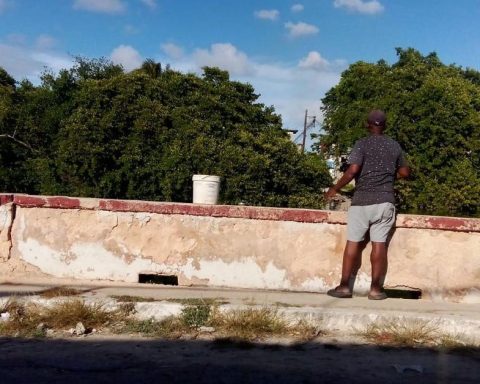April 19, 2024, 4:00 AM
April 19, 2024, 4:00 AM
Sexual violence considered as a scourge towards the depths of human dignity, today unfortunately the statistics resonate with increasing growth in all spheres of our society; Approximate parameters were identified that of 100 cases of sexual violence, only 20% report it and 80% remain silent; That is why, for quite some time now, at the level of Bolivian legislation and canonical legislation itself, steps have been taken regarding its procedure, attention, sanction and reparation, but it is not enough to mitigate this social problem, which is everyone’s responsibility.
Likewise, the Bolivian Church since 2019, committed to the need to protect and restore the rights violated against children and adolescents; was implementing concrete actions to address the alleged acts of sexual abuse in ecclesiastical environments; Specifically, the opening and operation of the listening commissions made up of people responsible and knowledgeable in the treatment of sexual violence from 2023; this as a measure to welcome, listen to and accompany those who have been silently carrying in their hearts the emotional burden of painful events, which in no way were responsible for experiencing them.
Thus, reflecting on silence is a reality so as not to close our eyes, which apparently suggests that it would not have generated greater impact or, in its case, would have been “normalized” in our society, however, this cannot be appreciated in such a way. In this way, given the emotional consequences for a victim of sexual violence, it is not easy to repair it; Therefore, taking the step towards revelation implies an entire systematic, emotional, cognitive and spiritual process that the person must process in the first instance to reveal it and bring to light everything experienced.
That is why we know of many cases that only in the clinical processes of therapy or support through listening can they manage to verbalize it for the first time, even after many years have passed; This situation could be considered suddenly, due to the emotional burden and strong feelings of guilt, as a predisposing factor to remain silent; and that somehow, he did not allow it to be done previously; Likewise, the element of ambivalence is understood as the experience of two contrary emotions, which are felt at the same time, for example “love and hate”; “wanting and not wanting” (revealing it or keeping it quiet); aspect that victims must deal with before making the decision to speak or verbalize it.
And one last element I would like to mention has to do with trust; That is to say, the victim, having gone through chronic or recurrent situations of sexual abuse at an early age, becomes a breaking factor so that the aspect of mistrust prevails both in their inner world and in the perception of the outside world; interpreting to herself that she does not live in a trustworthy world; This is how a breakdown of trust develops due to abuse, which promotes a distorted vision of the surrounding world; Therefore, trusting again based on the possibility of filing a complaint entails encountering this element of whether it is really worth exposing yourself to so much pain.
Which leads us to think about the possibility that the step towards reparation is to denounce and break the silence, as an alternative to make the leap from being a victim to being a survivor of a painful event, but one that now has the option to transform the damage, the pain into an opportunity to resist that experience and transform it into hope and change, into a possibility of rebuilding oneself after adversity, because it was not one’s “fault”, which is why revealing it implies giving a frontal step of positioning oneself with that feeling rooted in the depths of the hearts of the victims of believing their aggressors and feeling guilty of something that they were not at all; in addition to allowing these events to never occur again with anyone else, much less in scenarios typical of the culture of care, which today we are all called to promote as children of God, seeing others as the image and likeness of Him. , which will allow the generation of new personal meanings, for the construction of new life projects based on repair and psycho-affective recovery.
Finally, I want to point out the importance of the presence of support from the family system or main emotional references, which promote and/or accompany the process of disclosure, not to make it media, but as a process of accompaniment and source of resilience in this process of recovery once revealed; given that it is important to highlight that the survivors of these painful events are not alone, but can rely on an entire support network system to rebuild themselves based on personal resignation, projecting themselves towards levels even of transcendence that allows us to be light and sources of inspiration for others.


















